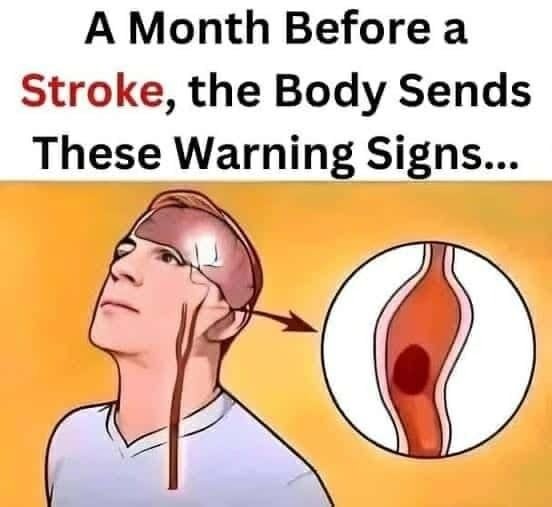Strokes often appear suddenly, but the body may give warning signs days or even weeks before the event. Recognizing these early symptoms could help prevent a stroke or minimize its impact. Here are some key warning signs that may appear up to a month before a stroke:
1. Frequent or Intense Headaches
- Why It Matters: Persistent or severe headaches, especially if they are unusual for you, may indicate restricted blood flow to the brain. These are more common in hemorrhagic strokes but can be a warning for ischemic strokes as well.
- What to Do: Take note of any headache that feels different from normal and seek medical advice if it worsens or persists.
2. Sudden Vision Problems
- Why It Matters: Blurred or double vision, or even temporary loss of vision in one or both eyes, may signal reduced blood supply to the visual processing areas of the brain.
- What to Do: Don’t dismiss sudden vision changes. Consult a doctor immediately.
3. Unexplained Weakness or Numbness
- Why It Matters: Weakness, numbness, or tingling on one side of the body (arm, leg, or face) may signal a mini-stroke or transient ischemic attack (TIA), which can precede a full stroke.
- What to Do: Monitor any episodes and seek urgent medical attention, even if the symptoms resolve quickly.
4. Difficulty Speaking or Understanding Speech
- Why It Matters: Slurred speech, difficulty finding words, or trouble understanding others may indicate brain areas controlling language are affected by reduced blood flow.
- What to Do: Record when these episodes occur and seek medical care urgently.
5. Dizziness or Balance Issues
- Why It Matters: Feeling off-balance, lightheaded, or experiencing unexplained falls may point to brain circulation issues.
- What to Do: Take these symptoms seriously, especially if they are accompanied by weakness or visual disturbances.
6. Unusual Fatigue
- Why It Matters: Severe, unexplained fatigue may signal your body is under stress or that brain blood flow is compromised.
- What to Do: Pay attention to sudden changes in energy levels and discuss them with your doctor.
7. Brief Episodes of Confusion
- Why It Matters: Difficulty focusing, confusion, or memory lapses may signal a TIA, often referred to as a “mini-stroke.”
- What to Do: Track these events and consult a healthcare provider promptly.
What Should You Do If You Notice These Symptoms?
- Act Fast: Even mild or temporary symptoms require urgent attention. These could be signs of a TIA or other conditions that increase stroke risk.
- Call Emergency Services: If symptoms escalate, especially if they’re sudden and involve speech issues, one-sided weakness, or severe headache, call emergency services immediately.
- Lifestyle Adjustments: Reduce stroke risks by managing blood pressure, quitting smoking, maintaining a healthy diet, and exercising regularly.
Early recognition and timely action can make all the difference in preventing a stroke or reducing its impact. If you or someone you know shows signs, don’t wait—act quickly!
